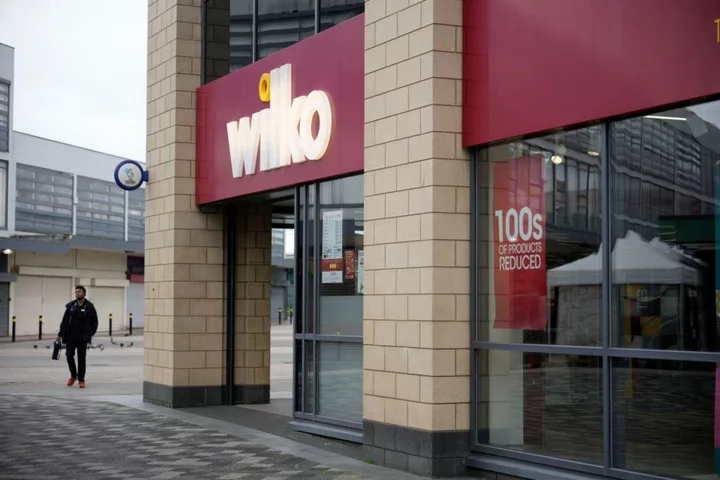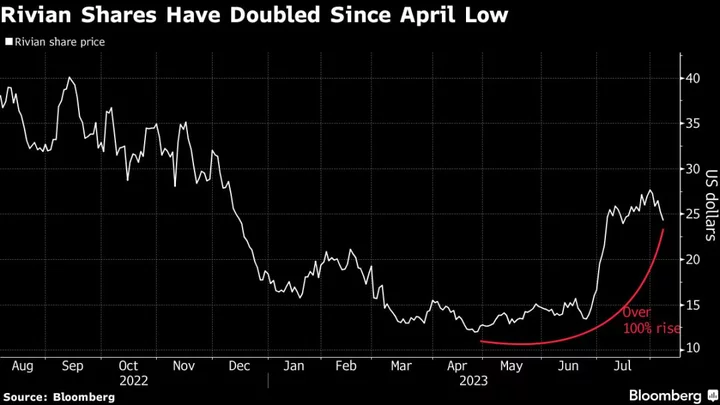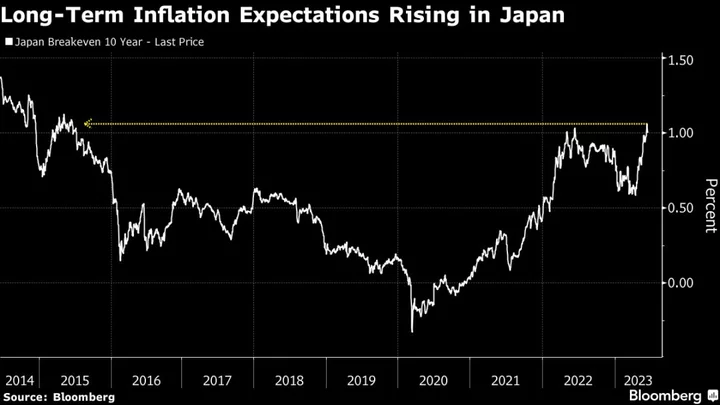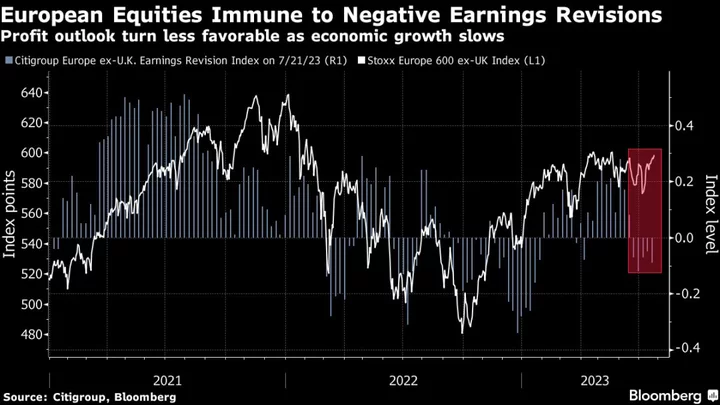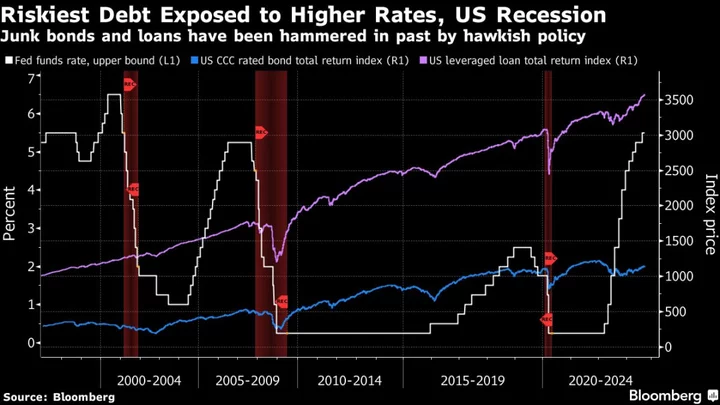The last thing Britain’s economy needed was a collapsing retailer with 400 stores across the country. That’s what happened this week when Wilko Ltd. plunged toward insolvency, threatening to leave an 11 million square-foot barren hole in UK town centers and shopping districts — equivalent to four Empire State Buildings.
The low-cost chain, which sells everything from kitchen equipment to garden furniture, was hunting for a rescue buyer amid a cash crunch. On Thursday, Chief Executive Officer Mark Jackson said time had run out leaving 12,500 staff at risk of losing their jobs.
The story of Wilko’s decline is familiar: a retail chain failing to adapt to changing consumer demands. However, it is also a story of the deepening crisis in Britain’s towns and cities, which are already blighted with boarded up shops from the closing of department stores Debenhams and BHS, while smaller retailers including Joules and Paperchase have left more gaps after running into trouble.
At the same time, big chains from Marks & Spencer Group Plc to Boots have signaled they will be scaling back. The trend is set to continue as the UK’s lingering cost-of-living crisis weighs on household budgets.
“We have a lot of space that shouldn’t be retail anymore, because a quarter of all retail spending is online,” said Diane Wehrle, insights director at research company Springboard.
The Wilko store in Norwich, in the east of England, sits on a street which has already lost a BHS and a Debenhams — both premises are still empty. Wehrle said areas including Slough, Woolwich and Leighton Buzzard would be badly impacted as Wilko was an anchor tenant. “Some town centers rely on retailers like Wilko to drive footfall and if you take the store out it leaves a big hole.”
Wilko’s administrators PricewaterhouseCoopers LLP are continuing to trade the business while they hunt for buyers for the brand, stores and remaining assets. The average store is 28,000 square feet in size, according to PwC, meaning the whole estate reaches as much as 11 million square feet.
The Demise
Founded in 1930 when JK Wilkinson opened his first store in Leicester, in England’s midlands, Wilko expanded to 400 shops across the UK — largely on busy main streets in town or city centers. It grew even while rivals failed or scaled back. When Woolworths collapsed in the height of the credit crunch in 2008, Wilko moved into 20 of its stores. When BHS failed in 2016, it took four of those.
Some people close to the company say that part of this expansion was ill-judged. A person who has worked with the company, who wished to remain anonymous, said Wilko should have retreated from the UK’s so-called high streets and moved to out-of-town retail parks. It should also have invested more in growing online sales, they said.
Richard Hyman, a retail adviser at Thought Provoking Consulting, said it was a “disadvantage” for Wilko to be in central high streets given the items it sells. “Schlepping big items in bags through the streets to the nearest municipal car park or on the bus home is really difficult,” he said.
Wilko’s presence in town centers meant that it was particularly vulnerable to Covid restrictions, which kept many customers at home. Visitor numbers to Wilko shops fell 40% during 2020. Full year revenue has dropped by more than 23% since 2018, with the firm reporting £31.9 million ($40.5 million) in losses for the year through January 2022, according to its most recent accounts.
Last year, it was forced to call in restructuring advisers, working with Interpath Advisory and then Teneo. A person familiar with the matter said that the company was initially unwilling to implement the drastic shop closures recommended by Teneo.
As Wilko sought to negotiate breathing room with lenders it turned to Hilco, a special situations investor, to provide a credit facility in late 2022. That refinancing required Wilko to pledge many of its assets as collateral for the loan.
Wilko’s future
Hilco has been granted security over an array of assets including the Wilko name, the firm’s receivables accounts and even certain slogans, including “Where there’s a Wilko there’s a way”, according to documents filed at Companies House. The Wilko pension plan was also granted security over certain assets as part of the Hilco financing deal, the filings show.
The company had little room left to maneuver. When efforts to slash rents failed, Wilko began to spiral last month. On July 24, it received a winding up petition from a disgruntled supplier, and the race was on to find a buyer. Gordon Brothers Group LLC, an investor specializing in struggling companies, came closest last week but it was ultimately unsuccessful, the people said.
Now, the field is open and already there is interest from two retailers, who might want between 250 and 300 shops according to a person familiar with the matter. One prospective buyer would preserve the Wilko name, while another would see shops re-branded by their new owner. No one is interested in taking all 400 stores.
It’s a gloomy prospect for Britain’s towns and shoppers and another headache for a Conservative government heading into an election year.
“It’s not the end of physical retail, and it’s not the end of the high street — but it doesn’t help the overall situation,” said Peter Williams, a veteran retailer and former chairman of Superdry Plc and Boohoo Group Plc. “It throws into sharp focus that retail is a very brutal industry.”
Author: Sabah Meddings, Katie Linsell and Lucca de Paoli

